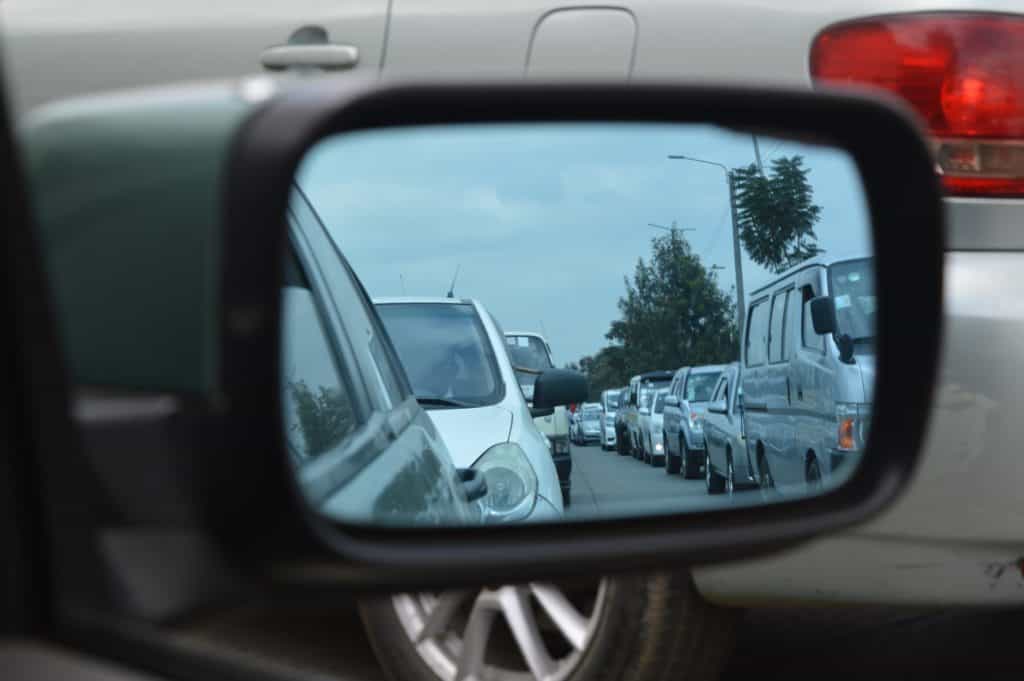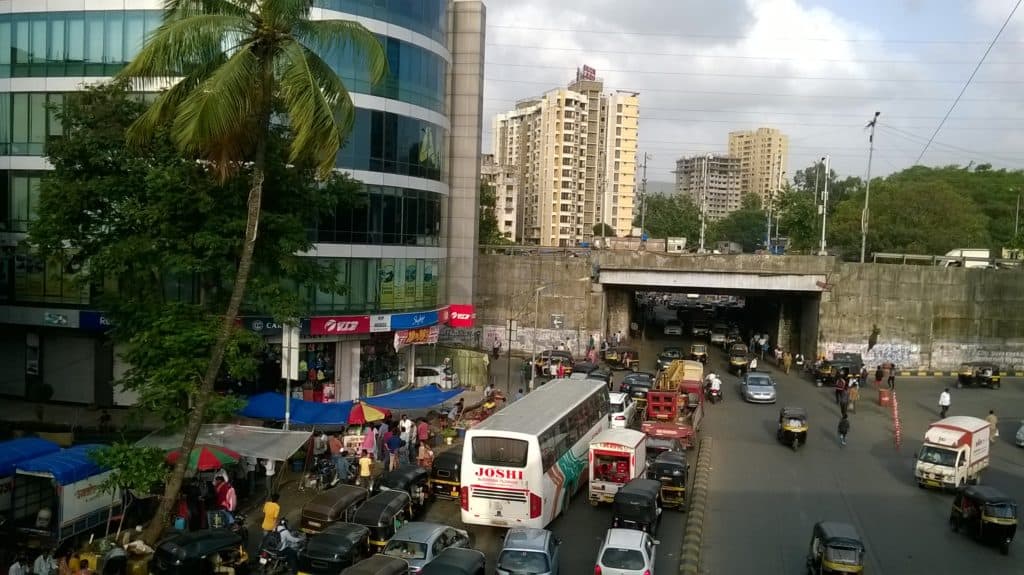Last week, the Bombay High Court asked the Comptroller and Auditor General (CAG) to probe into irregularities in toll collection on the Mumbai-Pune expressway. Activists had filed a Public Interest Litigation to stop toll collection fee on the Expressway, claiming the capital costs was already recovered from it in the past 16 years since 2004.
This pushed us to ask, what do Mumbai residents pay toll for? Currently, Mumbaikars have to pay a toll at five points. Dahisar on the Western Express Highway, Vashi on the Sion-Panvel Highway, Airoli bridge and two points at Mulund – Lal Bahadur Shastri Marg and the Eastern Express Highway.
In all, Mumbaikars pay toll for building and maintenance of 50 flyovers that are built at an estimated cost of Rs 1500 crores by the Maharashtra State Road Development Corporation (MSRDC) in the city, according to its official website.
The toll collection process at the five entry-exit points in Mumbai is scheduled to end by 2036. That might not happen.
Mumbai recovers about Rs 85 crore per annum from tolls started in January 2000. In addition, the Maharashtra state government also grants MSRDC about Rs 50 crores per annum from a cess levied on petrol and diesel for developing infrastructure projects.
That makes it approximately 135 crores per annum. Does this mean that the government would stop collecting toll in about a dozen years? No.
Here’s why.

Contracting private companies
An infrastructure project needs regular maintenance to ensure that asset quality is maintained, says Vijay Waghmare, Joint Managing Director, MSRDC. “There are demands by various sections to discontinue the toll. These claims are based comparing total toll collected over a period of time with the construction cost. This is incorrect as it does not reflect other cost components,” he adds.
Advocate for MSRDC Prashant Chavan, while arguing to continue collecting toll on the Mumbai-Pune Expressway, argued that under the Motor Vehicles Act, the state had the right to levy toll to recover capital outlay, which includes construction cost plus expenditure towards expansion, maintenance and sundry outstanding costs.
Initially the entire toll collection operation was handled by the government. In 2010-11 Maharashtra sold toll collection rights of Mumbai’s five entry points to a private company – MEP Infrastructure Ltd – for a period of 15 years till 2026 in lieu of a flat fee of Rs 2242.35 crores.
Right To Information (RTI) activist Anil Galgali asks why private companies are collecting toll when the flyovers were constructed with taxpayers money.
Galgali’s RTI found that of the Rs 1058 crores invested to build 31 flyovers in Mumbai by 2010, about Rs 926.92 crores were collected before MEP was contracted. So, was most of the construction amount already recovered?
In the month of June 2020, the five toll points had generated revenue of Rs 954.61 lakhs from toll receipts in the five toll points of Mumbai, according to MEP Infrastructure Developers Pvt Ltd. What happens to that money?
MEP is required to maintain the flyovers in Mumbai and other allied infrastructure. Galgali’s RTI found that during the ten years that MSRDC managed the flyovers from 1999 to 2010, it had spent only about Rs 119 crores for the maintenance.
Is MEP collecting more money than is required?
Consider this: in the Bombay High Court, MSRDC counsel claimed that while Rs 3,632 crore was recoverable in 2004, as of today, Rs 22,370 crore was yet to be recovered from Mumbai Pune Expressway.
The cost escalation was attributed to operational and management costs, interest etc, after adjusting revenue received.
According to the PIL, the government can collect toll only to recover the capital cost and expenses incurred in toll collection. However, over the past 15 years till 31 July 2019, the actual toll revenue collection is Rs 6,733 crore, which is more than the Rs 4,330 crore spent by MSRDC.
“There seems no proposal to end toll collection in the near future,” says Galgali.
How long will the toll fee be levied in Mumbai?
While MEP will collect toll till 2026, the toll collection period was recently increased to 2036. “As per state notification, Mumbai Entry Point toll permission is till 2036. MEP’s contract is till 2026. The next tolling agency would be appointed through a tender process to collect the toll,” says Waghmare.
Pravin Wategaonkar, an activist who has petitioned in the Bombay High Court against toll tax says tolls cannot be a permanent, additional source of revenue for the State. “The Motor vehicles Tax Act allows the government to levy toll to recover road project cost- such as improvement or widening of highways from say 2 lane to four lane or 6 lane highway, bridges, underpasses etc. However, this power to levy toll is limited to recovering only project cost, interest, toll collection expenses etc. Also, the state cannot renege from current toll collections contract obligations until the contract period expires,” he adds.
There are no options for those not interested in paying toll, says Deepak Singh, a Mumbai-based activist. “All of Mumbai’s entry points have been tolled and there is no way out for those not interested in taking the flyovers they built. Incidentally, the road taxes meant to provide the fundamental right of motorable roads have increased and so have the number of vehicles plying on roads. While these factors should have meant faster recovery of infrastructure costs, the toll fee is also being increased. Tolls are nothing but organised state loot and there is no escaping it.”
If anything, additional tolls are collected as newer projects kick off.
The upcoming Mumbai Trans Harbour Project (MTHL), a 22 km sea link connecting Mumbai to Navi Mumbai is expected to levy toll fees for a period of 45 years to recover the Rs8,800 cost of building the bridge.
People will have to pay a toll fee of Rs 800 to use the Mumbai Coastal Road from Marine Lines to Virar for 30 years for one side travel.

Politics of toll collection
In 2015, the Bharatiya Janata Party (BJP) came to power in Maharashtra by capitalising on public ire against toll charges and promising to usher in a toll-free Maharashtra. However, on coming to power, the then chief minister Devendra Fadnavis backtracked by saying that stringent contract terms made it difficult to cancel toll collection points in Maharashtra.
Raj Thackeray’s Maharashtra Navnirman Sena (MNS) too had protested toll collection but the movement fizzled out.
Moreover, the credibility of the private company is hardly a consideration while giving out contracts. Activists from Pune had accused toll collection firm, IRB, of impropriety in a PIL. Despite this, in June 2020, IRB was contracted yet again to collect toll at the Mumbai-Pune expressway for 10 more years.
Citizen speak
Mushtaq Ansari, Founder, Pothole Warriors, suggests that toll collection points should be shifted out of Mumbai to accommodate the extended suburbs. “A huge chunk of the population moved to extended suburbs like Vashi and Mira Road. In fact, most of the people who work in Mumbai are based outside. The problem has become more pronounced now especially during the lockdown as trains are inaccessible and people are forced to travel by road. Therefore, toll collection points should stretch to the Mumbai Metropolitan Region,” he says.
Ravi Raj Dhiria, a resident of Mira Road, is forced to pay Rs 90 every day to commute 23 kms to Andheri. “I fail to understand why are people forced to pay toll tax over and above the taxes that we pay to the government? Aren’t taxes meant to include building of infrastructures like roads and flyovers?” he asks. “Despite paying twice by way of taxes and toll, we continue to ply on potholed-ridden bad roads. What am I getting at the end of the day and where is my money going?”
Also read: